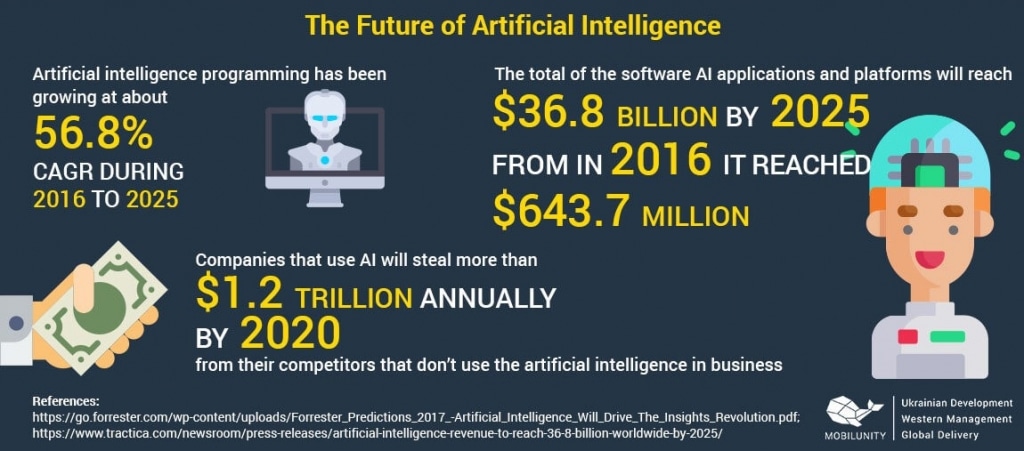Marketing has grown beyond identifying and generating leads for businesses. Companies now employ modern technology, tools, and strategies to enhance marketing and incorporate it into other aspects of the business. Developing marketing automation software, more of which you can see here, and free marketing automation tools are now a growing market.
What is Marketing Automation?
Marketing automation is the use of technology and methods that streamline and automate time-consuming marketing and business processes and responsibilities. Identifying and evaluating target audience, designing and processing personalized content, communication, and consumer engagement are only some of the processes that can be streamlined through marketing automation tools. With marketing automation, marketing processes and strategies are simplified and easier managed.
Marketing Automation Benefits
Marketing automation tools greatly impact marketers and businesses. Streamlining of processes, automation of communication increased ROI, and development of data-driven strategies are some of the capabilities of these tools. A lot of consideration goes into deciding to invest in marketing automation. However, it is easy to see that there are a lot of advantages to using such tools.
Gain and maintain better leads.
Marketing automation tools simplify and streamline marketing and sales processes. The use of such tools enables businesses to focus on developing and enhancing business strategies and maintain and nurture promising leads. Businesses have a more detailed perspective of their customers from data collected by such tools. Businesses and marketers are able to use this information to improve customer support and nurture promising and potential leads.
Enhanced and personalized consumer experience.
Consumers nowadays look for content that is unique, relevant, and tailored to their needs. Marketing automation tools help marketer and businesses collate and analyze information on consumer preferences, purchase trends, and customer profiles. Businesses are able to ensure that the right content reaches their targeted consumers. They are also able to provide services and products tailored to the needs of their customers.
Collect and process better data for decision making.
Marketing automation tools and practices are highly data-driven. Businesses are able to collect a large amount of data on their potential customers and consumers with the numerous marketing tools and digital platforms available. The data collected provide businesses with a better perspective and understanding of consumer practices, preferences, demand, and such.
These data are then collated, analyzed, and are then used by businesses to develop or enhance business and marketing strategies. Having a well-rounded understanding of target audiences enable businesses to come up with strategies and products and services that would better serve their customers and enhance their business.
A better understanding of consumers and potential customers.
Better consumer and potential customer information are gained by applying marketing automation tools. Automated and personalized communication and consumer engagement enables businesses to gain a more holistic understanding of their target market. Information such as purchasing trends, sites of interest, shopping and search patterns and behaviors are just some of the type of consumer information that helps marketers and businesses understand their market better and make improved decisions.
Trends in Marketing Automation for 2019
Here are some of the marketing automation trends and tools to look forward to in 2019:
Integrated Cross-platform Marketing
Also referred to as omnichannel marketing, this trend focused on providing customers with well-rounded experience across multiple platforms and devices. Companies utilize and establish a presence across various platforms and devices to expand their target audience. They also use these tools to provide their customers with a full shopping or subscription experience. This marketing strategy ensures that companies and their channels are able to engage with customers, and conversely provide customers multiple avenues to interact with the company.
More effort goes into establishing and maintaining omnichannel marketing. This strategy calls for consistent content and approach being employed by the company and the marketing team. Consistency in omnichannel marketing ensures that customers are able to receive the same experience and understanding of the brand across every channel.
Incorporation of AI Technology
Artificial Intelligence enhances marketing and communication. Businesses are able to collect, collate, and analyze large amounts of consumer and product data. The information gained from this is used to further improve the various aspects of the businesses, such as the product, marketing strategy, consumer engagement, and a lot more.

Incorporating AI tools help provide a personalized customer experience. AI tools are capable of providing personalized recommendations on content and products based on customer preference. Such technology is also assistive and can streamline communication, identifying and suggesting subject lines and search topics based on predetermined criteria or customer preference. AI tools such as chatbots are also a great help to customers in navigating products and channels, as well as maintaining communication.
Multi-channel Marketing and Communication
Similar to omnichannel marketing, multi-channel marketing and communication are focused on expanding the target audience reach of the company by establishing and maintaining a presence across various devices and platforms. This approach has been applied for some time now, however, except for a rise in online and digital marketing presence.
Marketing is no longer limited to online ads but has also expanded towards social media, email, messaging, video marketing trends, even events. Tools like Hootsuite and SproutSocial help implement and reinforce marketing through social media platforms. Often, marketers are able to utilize real-time communication, such as SMS, to build and maintain communication linkages and engagement with customers. Multi-channeling is more about expansion and reaching as much of the market as possible through various platforms and devices.
Predictive Lead Scoring
Lead scoring enables businesses and marketers to identify the best possible leads to which they can channel their marketing and promotional activities and output. With these, marketers are able to develop a marketing strategy that optimizes and streamlines resources and generates the most impact with potential consumers and the company. Using predictive analytical models to parse, sort, and score your potential leads.
Consumer-centric Marketing Strategies
The demand and adaptation of customer-centric products and services have been increasing over the years. Personalized shopping and product experiences encourage customer loyalty and appreciation for the product or company. Instead of marketing products and services to everyone accessible, consumer-centric marketing enables marketers to engage with the targeted audience of the product or service.
Through this strategy, marketers are more likely to reach and encourage potential customers. Collating and analyzing consumer data from various platforms help in generating personalized content.
Consumer Experience Personalization
As an addition to the consumer-centric marketing strategies, personalized marketing approaches enhance the consumer experience. This ensures that the information that marketers and businesses share is relevant and useful to consumers. Not only will businesses and marketers be able to focus resources on engaging their target audience, but they will also gain loyalty from consumers.
Automation has a lot of advantages and can benefit both the company and its customers when used the right way. Marketing automation tools are there to assist and streamline business processes. And just like any assistive tools available, human input is still necessary to add context and direction in making these tools effective.


